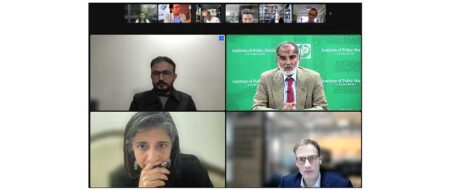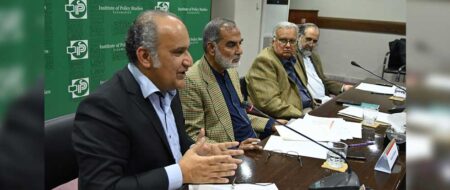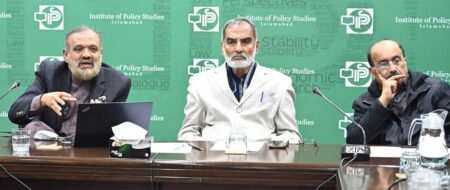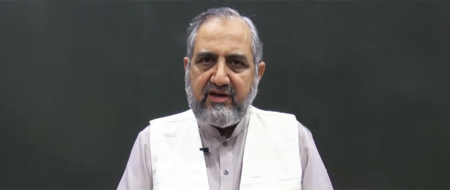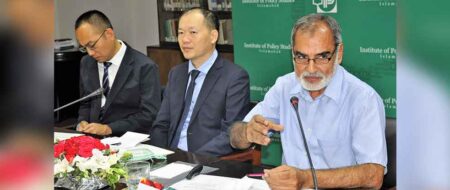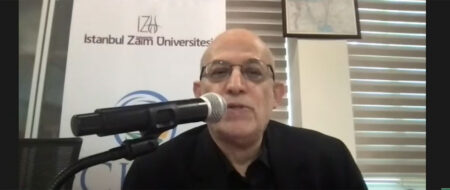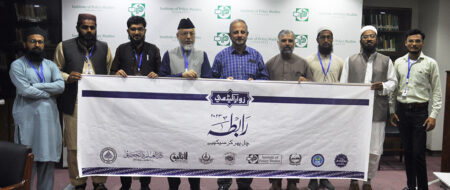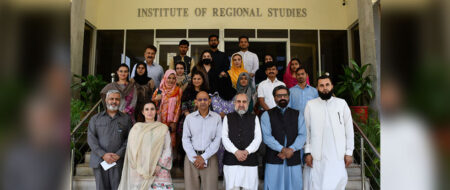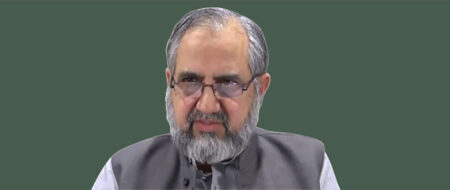‘Problems in Governance and Administration of Zakat in Pakistan’
The establishment of an efficient zakat system, which is fundamental to providing social protection, must be made a priority by the Government of Pakistan. In this regard, for a result-oriented system, the government should consider, as an example, the Akhuwat model and the Government of Malaysia, which took unique measures to alleviate poverty through a transparent and efficient utilization of Islamic finance, zakat, and charity funds.
This was advocated by speakers during a roundtable session ‘Problems in Governance and Administration of Zakat in Pakistan’ organized by the IPS on September 2, 2022, as part of its ongoing policy research project, titled ‘Islamic Social Finance for Social Protection’, to help develop an effective Islamic social finance model for sustainable social protection that can realize the dream of an Islamic welfare state in Pakistan.
The session, moderated by Dr Anwar Shah, associate professor Quaid-i-Azam University (QAU) and co-principal investigator, was addressed by Dr Salman Ahmed Shaikh, assistant professor SZABIST and principal investigator of the project.
Syed Abu Ahmad Akif, senior research fellow IPS and former cabinet secretary, Muhammad Mustafa Khan, technical advisor, GIZ, Naufil Shahrukh, GM Operations IPS, Jamil Afridi, assistant director IT, Zakat and Ushr Department, Khyber Pakhtunkhwa, Dr Muhammad Ayub, director Riphah International University, Ghazala Ghalib, lecturer IIUI, Dr Ikram ul Haq, secretary Council of Islamic Ideology (CII), Zubair Ahmad, a PhD scholar at Malaysia National University, Mufti Fawad Ali, resident member Sharia Board, ZTBL, Abdul Quddus Suhaib, chairman Department of Islamic Studies, Bahauddin Zakariya University, Multan, Jamila Achakzai, journalist at The News, Mufti Abu Bakar, member Sharia Board, Silk Bank, and Khalid Rahman, chairman IPS, also voiced their remarks in the session.
Dr Salman Shaikh presented his findings about the structure, mandate, and working of the district and local zakat offices, the allocation of funds in various programs, and the prevalent issues in the identification and selection of beneficiaries as well as the disbursement and auditing process of zakat funds. The findings were gathered through different field visits in the Punjab and KP provinces and interactions with stakeholders, including zakat administrators and zakat beneficiaries.
The speaker highlighted the gaps and issues in different dimensions of the zakat system in Pakistan. Of these shortcomings, as presented by Dr Salman, the absence of active participation of people, the public trust deficit towards the government on matters relating to the handling and disbursement of zakat, the high cost of zakat administration, increased exemptions, political interference, population increase, and obstacles to data sharing are prominent in zakat administration.
Moreover, the lack of adequate funds, the non-utilization of funds, and the lack of transparency are also some hindrances that make deserving beneficiaries more vulnerable to the volatile socio-economic situations of the country. These issues not only decelerate wealth circulation but also hinder socio-economic mobility, as indicated by the distribution of a meagre amount of Rs1,000 per month under Guzara Allowance in KP.
As discussed by the participants, awareness and understanding of different theoretical perspectives, development of efficient mechanisms, introduction of technology-based facilitation, and collective working and sharing of data with relevant institutions are critical to financial inclusivity, economic mobility, and social protection through Islamic social finance.
While concluding the session, Khalid Rahman pointed out that Pakistan is afflicted with several crises including bad governance, moral crisis, and administrative plight. These crises at the top level are eventually manifested through different sectors to the low level or vice versa. The present zakat system is also a reflection of such crises as the outcome of zakat collection at the government level is merely around Rs7 billion on the wealth of Rs280 billion.
These issues demand an innovative approach towards recommendations, which, in turn, need a keen assessment of the fundamental problems. Lastly, he emphasized that the larger economic picture of the world, where the dominant paradigm is capitalism and pursuance of national interests, can’t be ignored while developing concrete policy recommendations for the government to effectively implement them for social protection.



